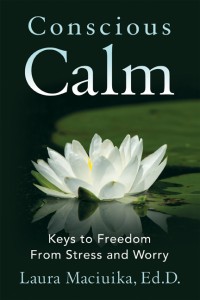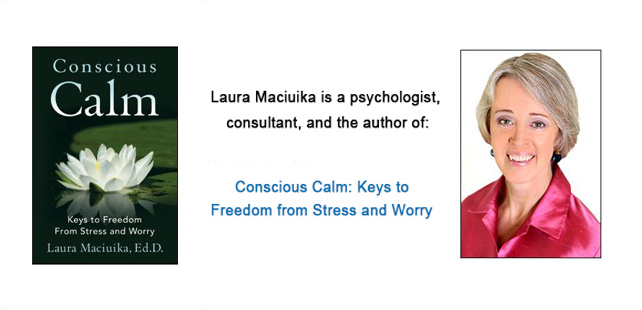 In the land of frequently asked questions, I often hear this one: How do I deal with stress? It’s such a simple question, really, and yet packs a punch. “Deal with stress” can mean many things to different people. So can “stress relief.” Let’s look at some of the options here, and their effects.
In the land of frequently asked questions, I often hear this one: How do I deal with stress? It’s such a simple question, really, and yet packs a punch. “Deal with stress” can mean many things to different people. So can “stress relief.” Let’s look at some of the options here, and their effects.
There are common ways people try stress management that may or may not provide short-term relief: 1) Distract from stress and any stress symptoms you may have with keeping busy, or even busier (move to yet another project in your day, multitask instead of focusing on one thing, say “yes” to yet another request).
Another common approach: 2) the “Suck it up!” camp, where people in high pressure jobs, high pressure families, or high pressure economic situations keep going and working hard even though they feel stressed and tired. These folks either learned or were taught to compartmentalize, and to push through stress and stress symptoms like headaches or fatigue, and are often rewarded for it. Sometimes not.
A third “deal with stress” category that’s huge these days: 3) Numb it out. That can go along with “Distract from it,” and it often combines with “Suck it up.” Numbing stress also goes along with alcohol, drugs, sex, food, gambling… fill in the blank with an addictive activity. That can also include too much thinking (which can be a kind of addiction for sure). Doing whatever numbing activity to not feel the stress, and numbing out stress symptoms that may include physical or emotional discomfort or pain, is the way so many people are trying to deal with stress. This of course is not really stress management at all, except in managing not feel feel the stress for a short time.
Short-term approaches only seem to help. In the long run, stress accumulates, and the stress symptoms may get louder, more insistent, or more serious. I recently read the Centers for Disease Control report estimating that every year 785,000 people have their first heart attack. That’s their first heart attack. And that’s just one of the many widespread health consequences associated with stress.
So what are healthier, longer-lasting answers to the question, How do I deal with stress? Here are a few ideas that are different from short-term approaches, and potentially can be life-shifting, lasting directions:
- Review your external stressors – those are important, and are the stress factors most people usually focus on. See if you can simply name them, even write them down, without creating a story line to go along with them. You might write, “I’m working 60 hours per week when I’m paid for 40,” or, “Right now I’m the only one bringing in an income in the family,” or “We are moving in three weeks.” Just the facts.
- Now review your internal stressors: the maybe-not-so-kind internal choices we make about how we approach our life. These include where we put our attention, and what we tell ourselves internally all day long. Internal stressors might be more difficult to identify – or they may be obvious. In any case, write down a few. These may be something like, “I tell myself it’s never going to change,” or “I think about problems in the middle of the night for hours,” or “I start telling myself how bad the day is going to be as soon as I get out of bed.” Just see what comes to mind if you consider your internal stressors.
- Then do a comparison. Ask yourself about those two lists: Where do you have the most control? Perhaps you do have control over some of the external stressors; maybe not. And it may or may not feel like you have control or choice in the second list of the internal stressors. For some people, those are the internal habits that run so deep, they don’t even feel like choices. And yet they are.
Not everyone wants to hear that, especially when they’re wondering how to deal with stress in their lives! And yet becoming more aware of where we put our attention, and how we create (or stop!) the mental stories in our minds, can ease our experience of ourselves and our lives day to day. The power lies in choice. If I put my attention on how bad my day is going to be as soon as I get up in the morning, what would it be like if I chose to put my attention on something else, something more energizing and upbeat? Even focusing on my pet, or my partner, or what I really want for breakfast, can be a huge change from the negative self-talk that might seem to invade the morning.
Notice some of the internal stressors — the old, maybe familiar habits — and choose again. That seemingly small change can be the cornerstone of a more enduring, enlivening way to deal with stress and experience lasting stress relief.

Dr. Laura Maciuika is a psychologist and the author of Conscious Calm: Keys to Freedom from Stress and Worry, available at Amazon and other online stores, or through ConsciousCalm.com



